The Cultural Management Program has a great international vocation. Participating in research or professional cooperation projects with colleagues in other parts of the world allows us to learn and contrast experiences, share methodologies and strategies, and grow thanks to more encouragement and resources.
All this experience is available to our students, PhD students and local cultural institutions. In recent years we have won competitive projects from the Creative Europe programme, Horizon Europe (formerly Horizon2020), Erasmus+, the Research Council of Norway or the Ibero-American Union of Universities.
Our partners come from some fifty different countries and bring complementary experiences and perspectives to the table: foundations, festivals, universities, theatres, government agencies, statistical institutes, inter-governmental organisations, associations, arts and culture councils, artist residencies or international networks, among others.
European research projects:
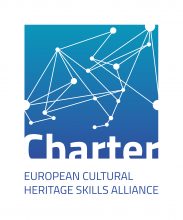 CHARTER – European Cultural Heritage Skills Alliance
CHARTER – European Cultural Heritage Skills Alliance
The Erasmus+ funded project started on January 2021 and will last for the next four years. CHARTER seeks to create a lasting, comprehensive sectoral skills strategy to guarantee Europe has the necessary cultural heritage skills to support sustainable societies and economies, including transversal competences such as digital/technological and green/blue economy skills.
The consortium reunites 28 members that represent some of the top education and training, organizations, networks and employers of the European cultural heritage sector. For more information, please click here.
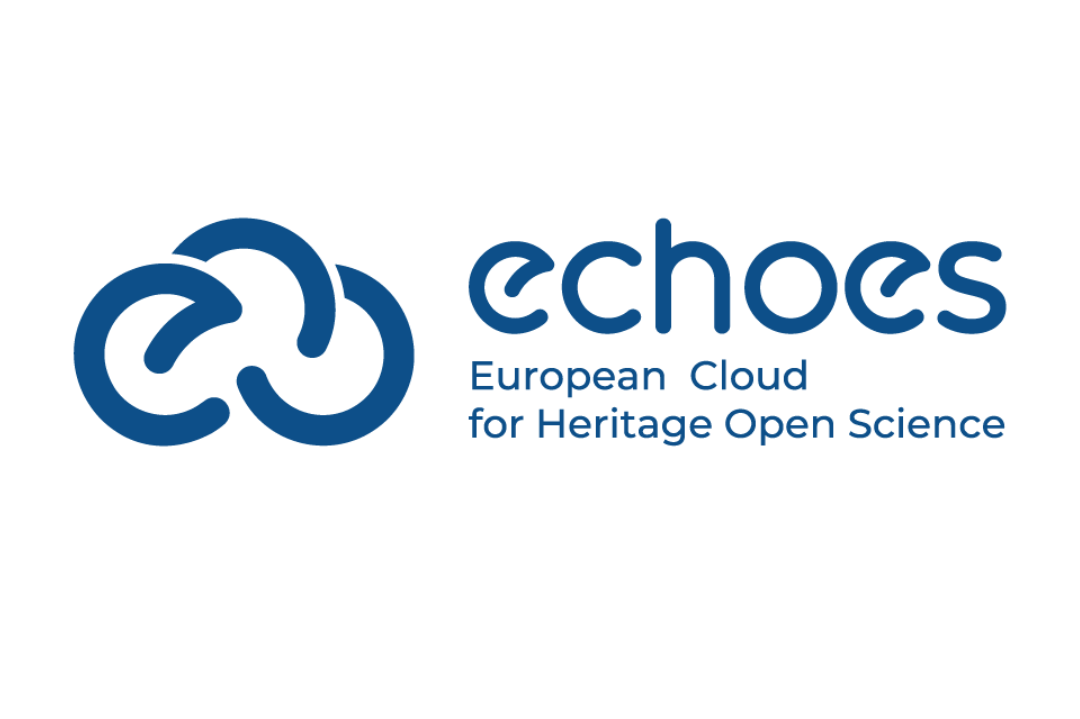
ECHOES – European Cloud for Heritage Open Science
The European Cloud for Heritage OpEn Science (ECHOES) project aims to establish the Cultural Heritage Cloud (or European Collaborative Cloud for Cultural Heritage – ECCCH), a shared platform to provide heritage professionals and researchers with access to data, scientific resources, training, and advanced digital tools tailored to suit their needs. Funded by the European Commission and UK Research and Innovation (UKRI), ECHOES will bring together fragmented communities of the Cultural Heritage field into a new community.
The consortium is made up of 51 partners, of which 26 are beneficiaries; 16 are affiliated entities, one of those being the University of Barcelona; and 9 are associated partners. For more information, please click here.
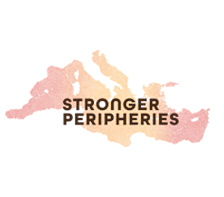 STRONGER PERIPHERIES: A Southern Coalition
STRONGER PERIPHERIES: A Southern Coalition
A “southern coalition” for the promotion of participation in the arts. A long-term initiative targeted at strengthening the basis of arts and culture in Southern European countries, with a special focus on participatory approaches and capacity building.
The project brings together 17 organizations from 10 countries all committed to promoting local participation in the arts and aiming to overcome barriers in their specific contexts through mutual cooperation. Stronger Peripheries: A Southern Coalition is a cooperation project co-funded by the Creative Europe Programme of the European Union.

CCProM – Cultural Cooperation Project Management
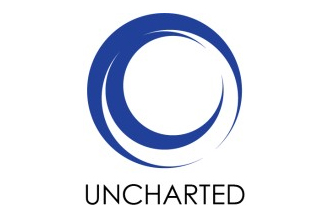 UNCHARTED (H2020) 01/2/2020 – 31/1/2024
UNCHARTED (H2020) 01/2/2020 – 31/1/2024
Focusing on the evaluation practices developed by the different actors involved in the cultural sector, the EU-funded project UNCHARTED will identify the plurality of cultural values in Europe linked to specific cultural products, productions, services, activities and sites. It will take into account the multiplicity of actors and the diversity of evaluation practices.
Led by the University of Barcelona and involving 10 research partners based in Spain, France, Hungary, Italy, Norway, Portugal and the United Kingdom, the project will focus on the assessment practices of the various actors involved in cultural life, from the public and visitors to artists, experts and policy makers”.
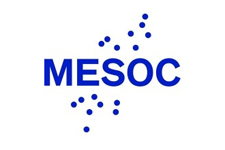 MESOC (H2020) 01/2/2020 – 31/1/2023
MESOC (H2020) 01/2/2020 – 31/1/2023
MESOC (Measuring the Social Dimension of Culture) is a three-year project funded by the European Union’s Horizon 2020 programme. The project adapts and further develops a method for “transition-based” impact assessment, building a structural model of the Social Dimension of Culture, as defined in one of the strategic objectives of the European Agenda for Culture presented by the European Commission in 2018. The expected output of the project is a free and open access online service that can be used by both researchers and practitioners to measure the social value and impacts of cultural policies and practices.
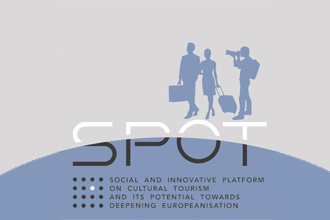 SPOT (H2020) 01/1/2020 – 31/12/2022
SPOT (H2020) 01/1/2020 – 31/12/2022
The consortium is composed of 15 partners from 14 European countries and Israel. Such a diverse team will bring a wide range of knowledge, inspiration and ideas, including close cooperation with local, regional or national stakeholders.
The project seeks to develop a new approach to understanding and addressing cultural tourism, as well as promoting the development of disadvantaged areas. It will explore emerging forms of cultural tourism, identifying opportunities and developing strategies to enable local people to benefit from their valuable cultural assets. It will address knowledge gaps by expanding and developing the idea of cultural tourism and will share lessons learned through an innovation tool designed to assist policy makers and implementers.
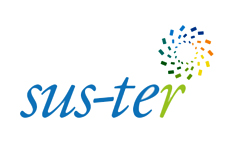 Sus-Ter (Erasmus+) 01/9/2019 – 31/8/2020
Sus-Ter (Erasmus+) 01/9/2019 – 31/8/2020
The SUS-TER project “Networks of knowledge, skills and competences for an inclusive and sustainable territorial valorisation of cultural heritage, products of origin and biodiversity” is coordinated by the University of Florence (Italy) and co-financed by the Erasmus+ Programme of the European Union. The project is a collaboration between 3 European partners (University of Florence, University of Barcelona and Diversité & Développement) and 6 partners from 3 different Latin American countries: University of Caldas and University of Quindío (Colombia), National University of Costa Rica and University of Costa Rica, National University of Mexico and Universidad Iberoamericana (Mexico).
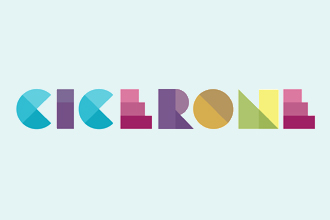 CICERONE (H2020) 01/2/2019 – 31/1/2023
CICERONE (H2020) 01/2/2019 – 31/1/2023
CICERONE, which stands for “Creative Industries Cultural Economy Production Network”, is an ambitious international interdisciplinary research project. Its main objective is to provide an innovative way of understanding the functioning of the cultural and creative industries, or CCIs, and thus to provide a new basis for effective policies at the community, national and local levels for these economic activities.
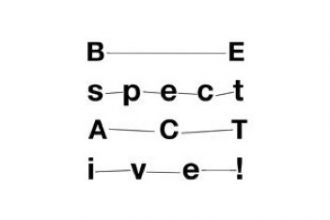 BeSpectACTive! (Creative Europe) 01/12/2018 – 30/11/2022
BeSpectACTive! (Creative Europe) 01/12/2018 – 30/11/2022
BeSpectACTive! is a European project financed by the Creative Europe Programme and focused on audience engagement. Among the partners are some of the most innovative organizations around Europe, which work is mainly based on empowering audiences in contemporary performing arts. The partners are 9 festivals and cultural venues, one research centre – Fondazione Fitzcarraldo, and two universities: the University of Montpellier and the University of Barcelona. The research team monitors the process and evaluates its impacts and effectiveness.
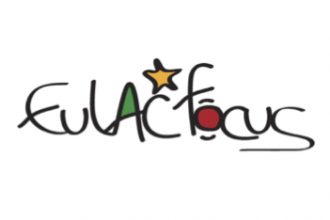 EULAC-Focus (H2020) 01/3/2016 – 30/11/2019
EULAC-Focus (H2020) 01/3/2016 – 30/11/2019
EULAC-Focus is a research project funded under the European Union’s Horizon2020 for the 2016‐2019 period, as part of the European strategy for strengthening the EU‐CELAC Partnership. The project aims at researching on the cultural, social and scientific relationships between the European Union and Latin America and the Caribbean, proposing high impact actions and strategies to enhance present initiatives and develop new cooperation projects.
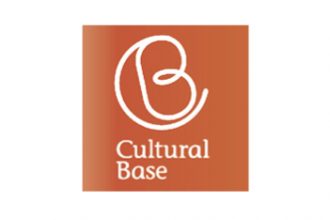 CulturalBase (H2020) 01/52015 – 30/4/2027
CulturalBase (H2020) 01/52015 – 30/4/2027
CulturalBase. Social Platform on Cultural Heritage and its European identities, coordinated by the University of Barcelona and financed by the Horizon 2020 programme titled “Europe in a changing world – Inclusive, innovative and reflective societies“. The aim is to address the issue of Heritage and European identities from a double perspective: namely, from a public policy and an analytical perspectives. The research is structured around three pillars: cultural identity, cultural heritage and cultural expression.
National research projects:
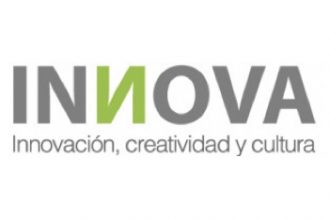 Innova
Innova
The project combines different disciplines with local realities that face the complex issue of the Spanish socio-economic model after the economic crisis, through the perspective of innovation, creativity and culture.
